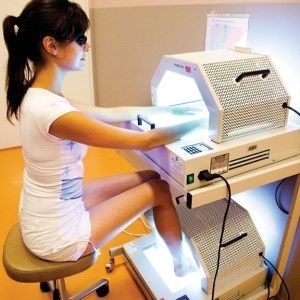Psoriasis UV
World Psoriasis Day 29 October 2024
Inspiring Hope and Empowering Individuals with Psoriasis
One home treatment for Psoriasis UV, ultraviolet light lamps, is as safe as a similar type of phototherapy you might receive as clinics or hospital. This is indeed good news for those suffering from this chronic auto-immune skin condition.
What is Psoriasis UV Treatment?
The actual name for this type of light therapy is “ultraviolet B” or UVB, and involves using an artificial UVB light device on exposed skin. Being able to perform this as a home therapy, according to a report out of the Netherlands, has proven to be more satisfactory for patients than when they have to take it in a clinical setting.
Is Home Psoriasis UVB Therapy Safe?
While many in the medical community believe that home therapy is inferior to those treatments performed in a hospital or clinic, research contradicts that. In fact, a research team from the University Medical Center Utrecht at the University of Groningen in Netherlands’ St. Antonius Hospital found that when comparing home UVB phototherapy with that administered in a hospital setting was just a safe and effective.
 Ultraviolet light lamps
Ultraviolet light lampsHome UVB Therapy vs. Hospital UVB Treatment
The research study involved 196
people through 14 different hospitals’ dermatology department in the
Netherlands.
At random, patients received UVB light therapy treatments as either hospital
outpatients or at home. The treatments were performed both in the hospital and
at home following standard light therapy practices.
Using commonly-used scoring guidelines, the disease severity after the treatment was measured. All of the participants, whether part of the hospital-setting treatment or the home UV therapy group, completed questionnaires about subsequent quality of life, satisfaction levels, and burden of treatment.
Results of the Home vs Hospital Psoriasis UV Treatment
Advantages of Home Psoriasis UV Treatment
Physical effectiveness on the disease was both significant and similar, regardless of where the treatments were administered. Additionally, both groups experienced similar short-term side effects and cumulative doses of UVB.
Perhaps not surprisingly, the participants treated at home experienced greater satisfaction and a significantly lower burned of treatment. Most of them also reported that they much preferred the home treatment, and would prefer that method for future treatments, rather than a hospital or clinic setting.
The report from the researchers pointed out some definite advantages of performing UV treatments at home. In addition to lessening the burden of trips to the hospital or clinic, home UV therapy was found to have the following benefits:
- Empowers patients to increase their use of recommended topical drugs
- Allows treatment to begin almost immediately after psoriasis flares
- Reduces the stress that impacts the severity of the psoriasis
Other benefits include: convenience and the fact that home treatments are more economical.
What to Excepts From Home UVB Phototherapy
Once you and your physician agree that you would benefit from home UVB phototherapy, you will receive a prescription for the purchase of the necessary equipment. Some insurance companies may cover the cost, and most equipment vendors will help you in working with your insurance company to purchase the equipment.
Even though you will be doing the treatment at home, you will still need to follow your physician’s instructions and keep regular follow-up check-ups.
You’ll also want to combine the UVB treatment with the continued use of your physician-recommended systemic and/or topical agents, although you need to be aware that some of these medications may increase photosensitivity, burning, and/or shorten any remission. However, combining systemic agents with UVB may dramatically increase the effectiveness such agents, allowing for a reduction in medication dose.
It is common for psoriasis to temporarily worse with the start of UVB treatment before eventually improving. Your skin may itch and become red following use of the device. If you experience such irritation, you may need to reduce the amount of UVB being administered. You may also experience a temporary flare even with low doses of UVB; however the good news is that those reactions usually go away with continued psoriasis UV treatment.
Back to top


